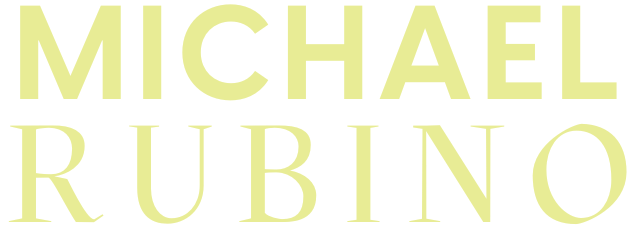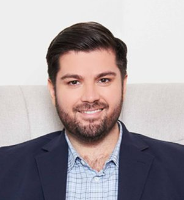In this episode of Mold Talks Docs, Michael Rubino sits down with Dr. Kasey Holland to discuss her experience treating patients who are suffering from mold illness and toxic indoor environments. She details how interconnected this issue can be with other conditions such as the Epstein-Barr virus and how many may be suffering, but are normalizing their chronic conditions.
Dr. Kasey Holland, ND is a Naturopathic Doctor. She chose to go into Naturopathic medicine because she believes that health is made up of physical, mental, emotional, and spiritual components. She is passionately driven to provide her clients with a completely holistic approach to their health concerns, no matter how simple or complex they may be. Dr. Holland’s goal for each client is to uncover the root cause of their ailments. She understands that the key to achieving optimal wellness and being free of chronic disease is multi-dimensional and different for each individual. Part of this comes from her own experience with health obstacles.
After graduating from Montana State University with her Bachelor of Science in Cell Biology and Neuroscience with an emphasis in biomedical sciences, Dr. Holland earned her Doctorate in Naturopathic Medicine at Bastyr University in Seattle, WA through a four-year CNME accredited program.

While there, she completed specialty rotations in environmental medicine, immune wellness, oncology, IV therapy, Parkinson’s disease, emergency medicine, and mind-body medicine. After this, she worked in an integrative health clinic that incorporated functional medicine during her residency. This has provided her with exposure to a wide variety of pathologies and patient care in order to serve you better. While enjoying working with any client’s health concerns, ranging from hormones to gastrointestinal health, some of her specialties include chronic EBV, Lyme disease, mold exposure, Parkinson’s disease, Alzheimer’s disease, anxiety, and depression.
Dr. Holland maintains her license in Washington state. She is a member of the American Association of Naturopathic Physicians. Her passion is to bring Naturopathic medicine to all communities and provide people with options that fit their needs. In order to support this mission, she takes action with the Institute for Natural Medicine and the Global Lyme Alliance.
In this episode, they dive into:
0:30: Dr. Kasey Holland discusses how big of a piece external toxins play in health and wellness and the experiences she’s had helping clients. Water-damaged homes in particular are posing a serious health risk, she said.
2:00: Dr. Kasey Holland details her thoughts on how indoor contaminants like mold influence the Epstein-Barr virus and why they play such a large role. Maintaining a healthy environment is a key component of healing, she said.
5:30: Dr. Kasey Holland highlights how great the variation can be in those who experience adverse health reactions to exposure and the extent to which it impacts their lives.
8:00: Dr. Kasey Holland discusses how some individuals may not be able to notice a vast influence on their bodies from exposure, but that doesn’t mean it doesn't have an effect. She’s seen many people who have gotten out of these environments and realized that they were experiencing symptoms, but just didn’t recognize that there was ever a problem that needed fixing.
11:45: Dr. Kasey Holland details her career in treating individuals with mold illness and what led her to this route of treatment.
16:00: Dr. Kasey Holland discusses the rising prevalence of mold growth in brand new homes and a few reasons why this is occurring.
21:15: Dr. Kasey Holland talks about her experience with people and clients attempting to downplay or normalize things like the effects of toxic exposures. Much more awareness and consideration are needed for things like managing indoor mold growth properly so that fewer people suffer.
27:00: Dr. Kasey Holland goes through her process of helping clients heal from exposure and what people should look for if they suspect a problem. As she says, every individual is different, so she assesses where their comfort levels are and their acceptance of mold as a root cause, and then forms a plan around this. "Once you have experienced mold and seen a lot of people with mold, you can kind of spot it. It's almost like there's a flavor or a scent to it. When you see somebody, you just say, "Oh, it looks like they're dealing with mold." But there are symptoms that can alert you. We have the common well-known symptoms of mold allergies where, "Oh, you're sneezing, you have sinus congestion," things like that. Sinus congestion is very commonly associated with mold. But a lot of times, people don't have sinus congestion. And so they think, "Oh, well, it can't be mold because I don't have any of those symptoms." And that's not true either. The truth is that mold can affect every system of the body, and so one thing is if you notice a lot of different symptoms- if you feel anxious, you have headaches, and you have brain fog, and then you're also not sleeping, needing to urinate all the time, and having digestive changes- when you have all those different things kind of coming on, that's a really big indicator that we need to check your environment and check for mold."
33:00: Dr. Kasey Holland explains the importance of the doctor-patient relationship and how this can impact helping individuals heal. Having data and testing options available can help bridge the gap for those who are struggling with exposure, particularly those who are sensitive.
40:00: Dr. Kasey Holland explains why people should have high standards for mold. Not only will you save time and money, but you will also save your health as well. "Have high standards with mold. When you go in and you fix it right away and you take care of it right away, you're going to save time and money, but you're also going to save your health. Take your time, do your research, get a consult, really listen to yourself, and don't underestimate mold. Then be ready to change things and to do things because it really is worth your health. You might not be feeling awful, you might still be functioning and not notice it a lot, but it can still have long-standing effects on your health. Be aware of it and really put the time in to address it and not just shrug it off."
Make sure to subscribe to Michael Rubino's Channel so you never miss an episode of Mold Talks Docs.

